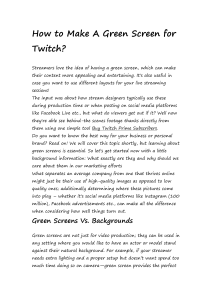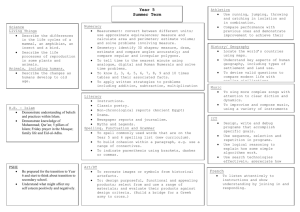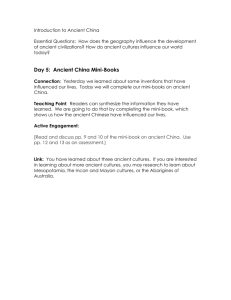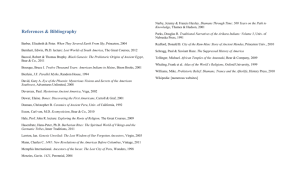Anna Foka
advertisement
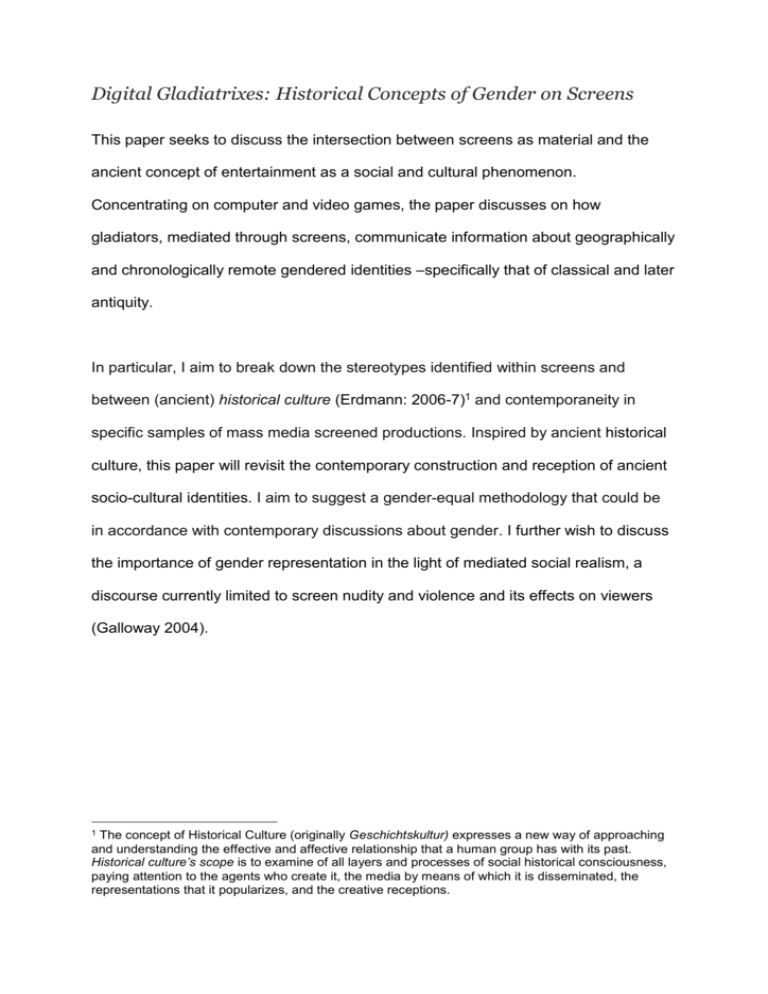
Digital Gladiatrixes: Historical Concepts of Gender on Screens This paper seeks to discuss the intersection between screens as material and the ancient concept of entertainment as a social and cultural phenomenon. Concentrating on computer and video games, the paper discusses on how gladiators, mediated through screens, communicate information about geographically and chronologically remote gendered identities –specifically that of classical and later antiquity. In particular, I aim to break down the stereotypes identified within screens and between (ancient) historical culture (Erdmann: 2006-7)1 and contemporaneity in specific samples of mass media screened productions. Inspired by ancient historical culture, this paper will revisit the contemporary construction and reception of ancient socio-cultural identities. I aim to suggest a gender-equal methodology that could be in accordance with contemporary discussions about gender. I further wish to discuss the importance of gender representation in the light of mediated social realism, a discourse currently limited to screen nudity and violence and its effects on viewers (Galloway 2004). 1 The concept of Historical Culture (originally Geschichtskultur) expresses a new way of approaching and understanding the effective and affective relationship that a human group has with its past. Historical culture’s scope is to examine of all layers and processes of social historical consciousness, paying attention to the agents who create it, the media by means of which it is disseminated, the representations that it popularizes, and the creative receptions.






